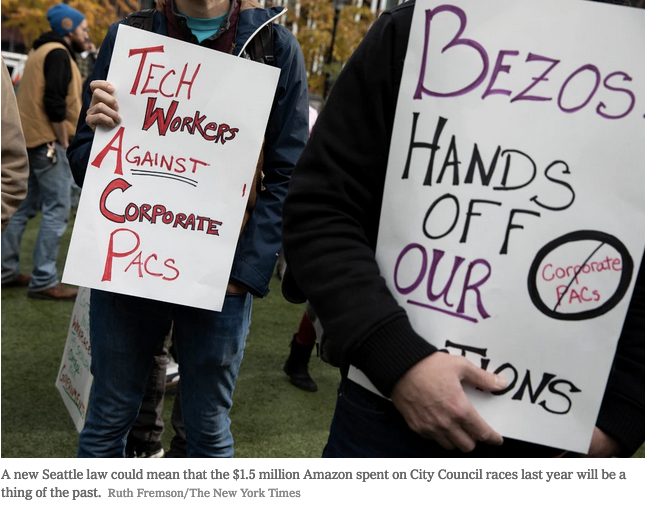By
Ms. Weintraub is a commissioner on the Federal Election Commission.
On Monday, the Seattle City Council responded to Citizens United, the infamous Supreme Court decision that has drowned our elections in a sea of largely unregulated cash for the past decade.
Instead of trying to repeal or ignore the 2010 ruling (two wildly popular options that aren’t actually legal), the council applied it to city elections on its own terms, passing a law that gives life to a theory I put forward in 2016. The theory, in a nutshell: Citizens United allowed corporations to spend freely in politics, calling them “associations of citizens”; their right to do so flows from the collective First Amendment rights of their individual shareholders. It logically follows, then, that restrictions on the rights of shareholders must also apply to the corporation.
One of our most important campaign-finance limits is that “foreign nationals” are barred from spending in any American election, city, state or federal. Since that’s true for individual foreigners, it must also be true for the corporations owned in whole or in part by them. One cannot have a right collectively that one does not have individually.
Seattle’s law, similar to one passed in St. Petersburg, Fla., in 2017, requires corporations that seek to spend in city elections to certify that they are not “foreign-influenced corporations,” and are, thus, in compliance with both Citizens United and federal statutes. Seattle defined any corporation as “foreign-influenced” when more than 1 percent of it is owned by an individual foreign entity, or more than 5 percent is owned in aggregate by two or more foreign entities. These are tight standards, but arguably, not as tight as the zero-tolerance standard that a strict reading of federal law would suggest.
Read full article




